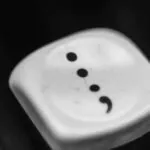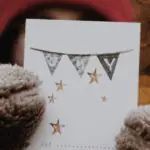
How to Use Commas with Coordinating Conjunctions
Coordinating conjunctions can be confusing for new proofreaders, especially when commas are involved. We’re here to make things clear for you with our guide to using commas with coordinating conjunctions.
What Is a Coordinating Conjunction?
Coordinating conjunctions are words that join words, phrases, or clauses together. We have seven coordinating conjunctions in English, which can be remembered with the mnemonic “FANBOYS”:
For, And, Nor, But, Or, Yet, So
Coordinating conjunctions usually appear within a sentence but can also be used to start a sentence. Using a comma with a coordinating conjunction will depend on what type of phrase or clause the conjunction is joining together.
When to Use a Comma With a Coordinating Conjunction
Commas should always be used if a coordinating conjunction joins two independent clauses. An independent clause is a clause that contains both a subject and a verb, so it makes grammatical sense on its own. For example:
The fisherman was having terrible luck at his usual spot.
He picked up his kit and moved downstream.
These clauses both work as individual sentences. If we were to join these independent clauses with a coordinating conjunction, we’d need to add a comma before the conjunction:
The fisherman was having terrible luck at his usual spot, so he picked up his kit and moved downstream.
However, a comma before the conjunction isn’t always necessary if the two independent clauses are very short:
I screamed, and the ghost vanished.
I screamed and the ghost vanished.
Both versions of the sentence above are technically correct, although some style guides may require a comma to be used regardless of the length of the clauses. Make sure to check the style guide your client is using before adding or removing a comma in such a case.
When Not to Use a Comma with a Coordinating Conjunction
A comma should not be used with a coordinating conjunction if the conjunction is joining an independent clause with a dependent clause:
The duck landed in the pond and shook out its wings. ✔
The duck landed in the pond, and shook out its wings. ✘
In the above example, the clause “shook out its wings” is missing a subject, so it can’t form a complete sentence on its own. This makes it a dependent clause, so adding a comma before “and” would be incorrect.
A comma is also unnecessary when linking two words or phrases within a clause to create:
- A compound subject (e.g., “the fisherman and the duck”)
The fisherman and the duck were friends. ✔
The fisherman, and the duck were friends. ✘
- A compound object (e.g., “tea or coffee”)
They weren’t fond of tea or coffee. ✔
They weren’t fond of tea, or coffee. ✘
- A compound adjective (e.g., “tough but fair”)
The new headteacher is tough but fair. ✔
The new headteacher is tough, but fair. ✘
- A compound adverb
He laughed loudly and unabashedly at the terrible joke. ✔
He laughed loudly, and unabashedly at the terrible joke. ✘
Finally, it’s incorrect to use a comma after a coordinating conjunction that’s at the beginning of a sentence:
But she was struggling to see the road ahead. ✔
But, she was struggling to see the road ahead. ✘
And why did toilet paper see record sales? ✔
And, why did toilet paper see record sales? ✘
Overall, the best way to remember the comma rule is that if one of the clauses you’re joining together doesn’t make sense on its own, it’s incorrect to use a comma.
Becoming a Proofreader
Our Becoming A Proofreader course will teach you all the ins and outs of English grammar, including how to fix typos and punctuation errors. Sign up for a free trial to see where we can take your proofreading career!








Leave a Comment
Your email address will not be published.